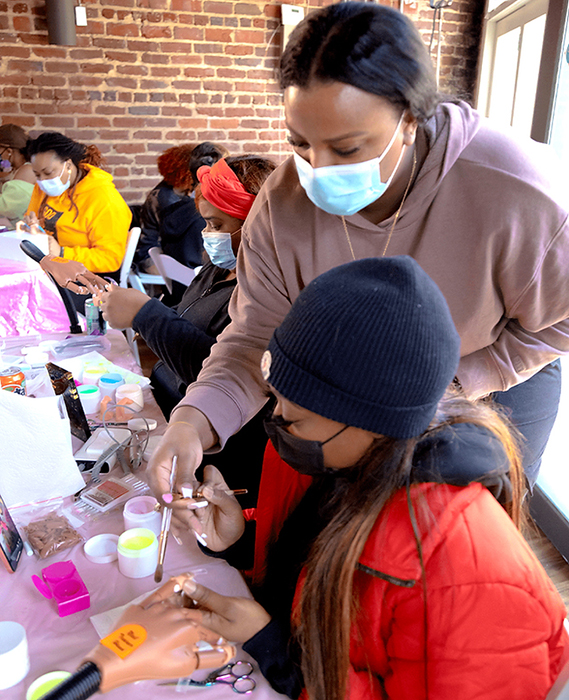A South London charity which provides vulnerable women with practical workplace training is appealing for support to step up its vital work as demand grows.
Impact School of Skills works both with women who have recently left prison, as well as women with autism, to provide skills training in areas such as beauty, haircare, sewing, and baking. The charity has a proven track record in equipping its clients with skills and support to start their own microbusinesses, or to obtain work with existing companies.
As the need for its services increases, Impact is appealing not only for much-needed funding in the form of donations and grants, but also practical support such as donation of materials for training, and the loan of premises where it can run courses.
The charity’s drive to rase awareness of its work comes as the Government tries to resolve the prisons overcrowding crisis by freeing up places.
Impact School of Skills founder Shola Salako says: “Without support, women leaving the prison system are at high risk of reoffending, but we’ve shown that early intervention in the form of skills training can break that cycle. Giving a woman in-demand skills boosts her employability and reduces the risk that she’ll end up back in the justice system.”
Equally, as the Government focuses on reducing welfare costs, women with autism often need targeted support to find work. Salako says: “Autism is a very individual condition, and there’s no one-size-fits-all approach.
“Women with autism can often leam skills such as sewing to a very high standard but may need additional support in terms of marketing those skills to prospective employers, as well as in navigating the social aspects of working relationships.”
Founded in 2021, Impact School of Skills is a registered charity, which has already worked with around 80 clients. Salako, a graduate in human resources, founded the charity in response to a clear need for practical, focused support for women entering the workplace.
With experience of running her own beauty aesthetics business, Salako ”realised that I have skills which could be passed on to women who want to work for themselves, and that there are also many other people who can provide all-important skills training and support.
“Like any charity, we require funding, and we can demonstrate that our support delivers immediate social and financial benefits, from helping to address the prisons crisis to reducing the welfare bill.
“We also need more places to run training workshops, and would like to work with colleges, local authorities and private employers to identify spaces we can use. We can also make use of surplus cosmetics and beauty products, sewing kit and a range of other supplies.”
One example of Impact’s success is service user Christine, who says: “I studied Acrylic and gel extensions with Impact, and became qualified after being released from HMP East Sutton Park. The course would have set me back about £600 without the charity, I managed to become qualified, and the charity still helped me to secure a role in a super busy salon with an extremely supportive employer, and I was trained even further.”
Shola Salako sums up: “Improving the employability of women who need a little extra support and training is a win-win, not only having an immediate impact on the individuals’ lives, but also wider benefits for society. We’re now actively seeking grants, sponsorships and other partnerships to roll our programmes out as widely as possible.”
Impact School of Skills is the trading name of the Impact & Skills Foundation, Registered Charity No. 1200413. For more information see https://www.impactandskillsuk.org/
Caption to accompanying image: Impact School of Skills founder Shola Salako working with a client.
Notes to Editors:
- Around 35% of female offenders are first-time offenders, and around 20% of female offenders go on to reoffend. Figures from the Prison Reform Trust show almost 60% of female offenders have experienced domestic abuse. Women who return to prison are at risk, with self-harm rates in female prisons almost seven times higher than in male prisons.
- The National Autism Society reports that more women and girls than ever are discovering that they are autistic. Many had been missed or misdiagnosed due to outdated stereotypes about autism, which means many women with autism receive support later than males, affecting their working opportunities.
